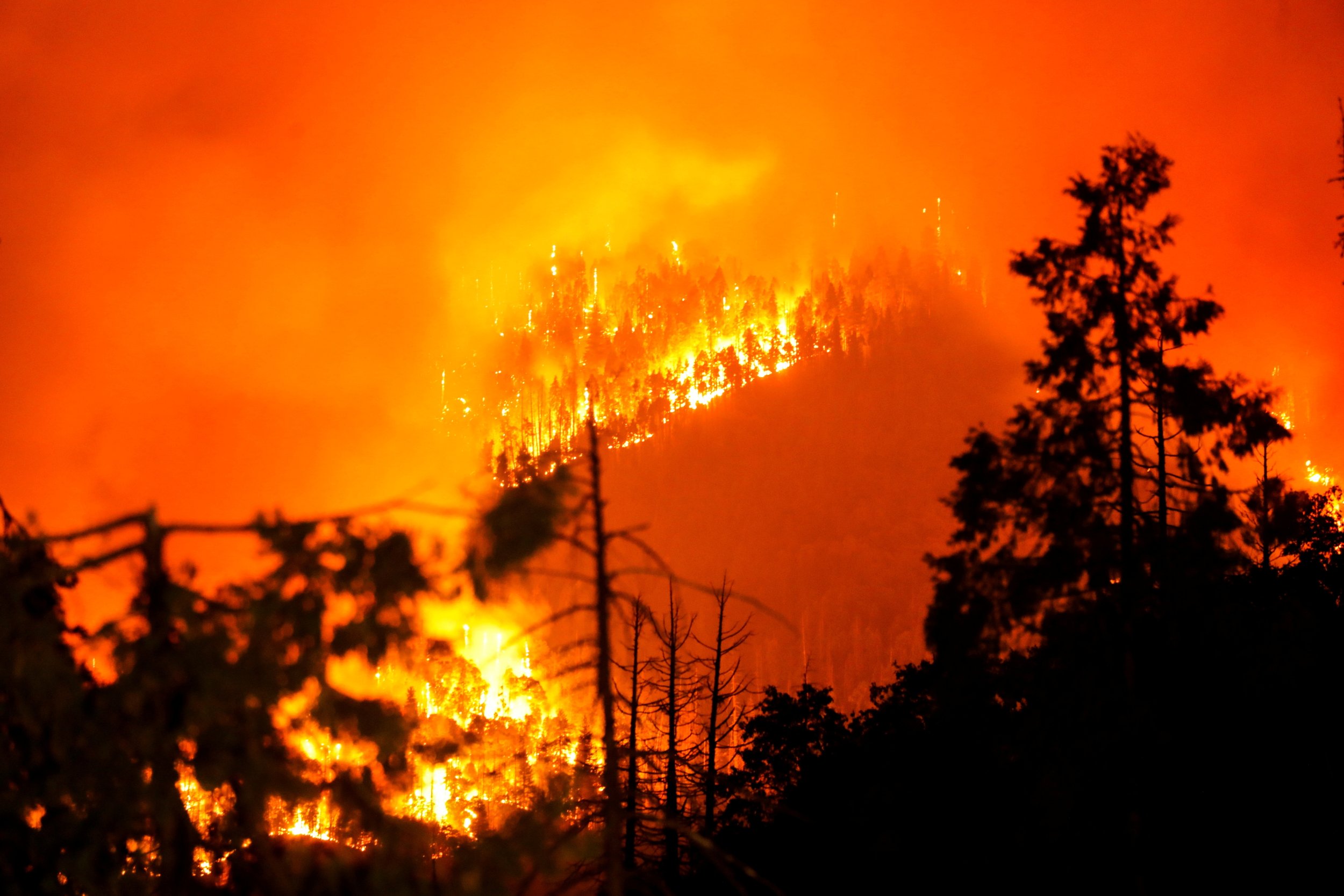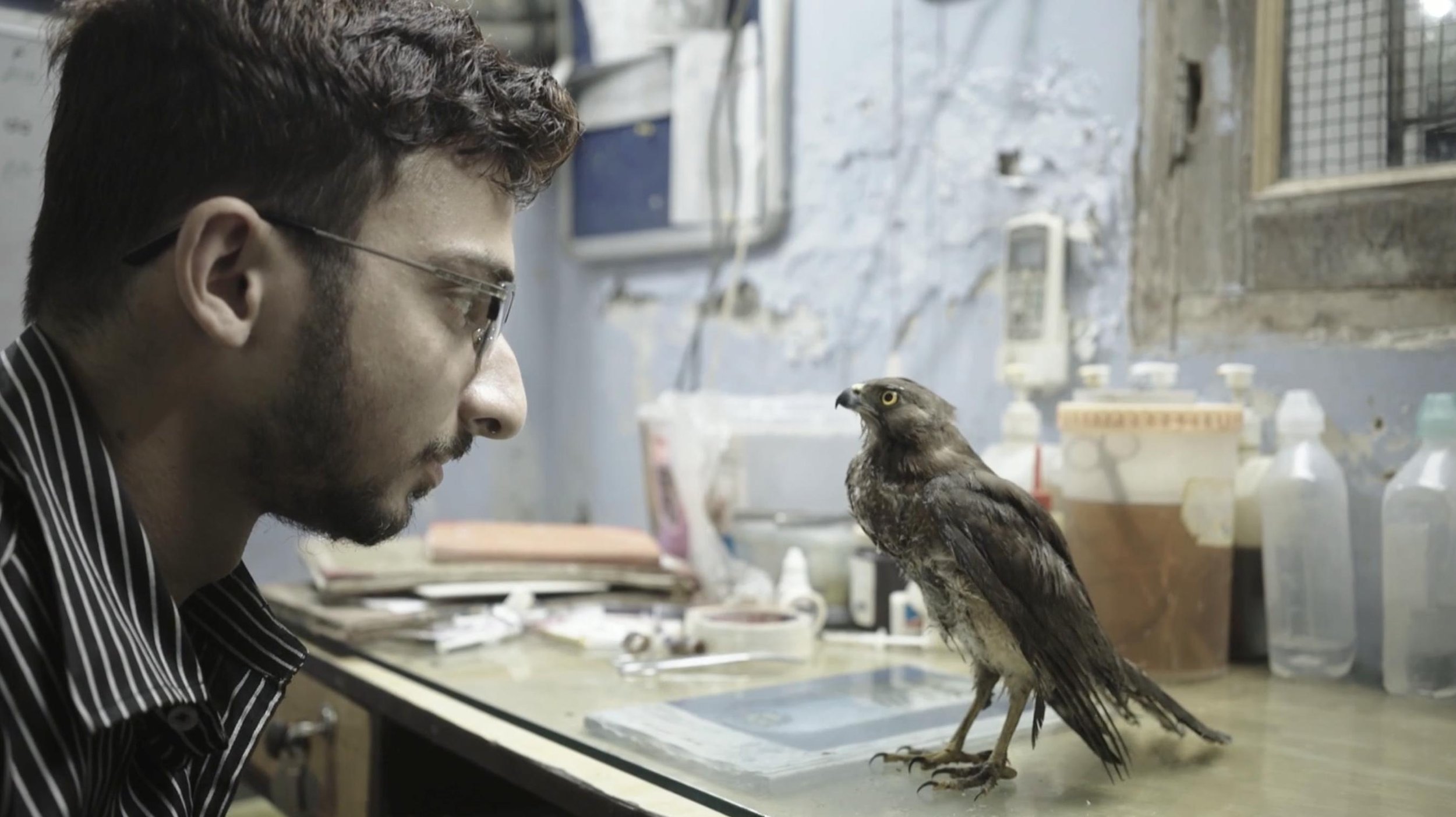Investing in People to Save the Planet
The Windy Fire burns in Sequoia National Forest near California Hot Springs, California, U.S., September 24, 2021. [David Swanson/Reuters]
Between the heat wave in the Pacific Northwest, the deep freeze throughout the South, the storms and flooding in the east, and the fires in the West, 2021 has felt distinctly apocalyptic. As millions of Americans can attest, we’re just not ready for the world’s changing weather.
President Joe Biden’s infrastructure spending bill includes billions to weatherize homes and move vulnerable communities out of danger zones, but preparing for the future isn’t as simple as putting up a few dikes and levees. What were once called 50-year floods or 100-year floods are much more frequent now, and some regions don't have the ability to recover from one disaster to the next.
Earlier this month, AJ+ producer Hangda Zhang interviewed Jola Ajibade, a climate change adaptation expert and assistant professor of geography at Portland State University. “The impact we're feeling from climate change is gigantic. It’s just huge. And our efforts are sort of like trickles, like water, like a drop in the ocean,” Ajibade said. If “the infrastructure in the U.S. was ready, we wouldn't see the kind of impact we have seen.”
New investments in buildings, plants and people
Creative infrastructure solutions to the extreme weather problems are multiplying – for example, the Metropolitan Area Outer Underground Discharge Channel, a system of underground tunnels and chambers that protect Tokyo from floodwaters. The need for other key infrastructure, like evacuation transportation and levees, is well-established.
But Ajibade’s definition of infrastructure doesn’t end with the built environment.
Planting more trees for water and carbon absorption is just as crucial, as is investing in social infrastructure like the people who research and develop new solutions to climate crises, and outreach programs to guide people in the event of an emergency like fire or flooding. Natural solutions “are actually much more sustainable” and “not likely to just break down or cause newer problems,” Ajibade said.
America’s politics are a hot mess
While the Biden administration has announced a $1.2 trillion infrastructure plan that makes some provisions for the climate emergency, Ajibade says that American politics are set up to stymie progress. Many of the politicians who will vote on the bill take money from fossil fuel companies.
She notes that conflicts over the climate crisis within the U.S. are unusually bad, and affect the whole world. “In other nations it's not necessarily the same… I think especially in the Scandinavian countries, we see a lot of interest and investment in transitioning away from fossil fuel… And we see the U.S., who you would expect to play more [of a] leadership role in this area, not doing enough.”
Climate change infrastructure must make the world more equitable too
“Climate change is threatening our access to health, to housing, food. And yet we're seeing some people really rake in a lot of money from these disasters and from the policies that actually engender climate change,” Ajibade said. She believes that in order for the U.S. to effectively address the climate crisis, infrastructure investments must reckon with inequalities like access to housing, food and education. This is more important than continuing to measure the country’s progress by its wealth, instead of by the well-being and equality of its people. If the “American dream” currently consists of owning bigger houses and cars, that dream may need to be reimagined.
“We need to tie our values back to climate change issues and see how the things we value may be exacerbating climate change,” Ajibade continued, while we still have the chance to “create equitable and resilient societies.”




